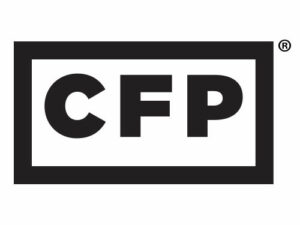By Bryan Trugman, CFPⓇ
You probably think your values align with spending. Most of us do. But we’re often wrong. Finding the right balance between enjoying the lifestyle you want today and planning for tomorrow can be tricky. The missing link is thinking about values. But this requires more than understanding what is most important to you. When spending activities match your values you are more likely to accomplish investing goals in a rewarding way.
Most Spending Isn’t Intentional
We aren’t guaranteed tomorrow, so it’s important to decide how much of our money to use for the things we want to enjoy today. We sometimes find that as people earn more, they spend more—many times on things that don’t even bring much enjoyment. For instance, I had one client who purchased a home in the country on impulse, then took a loss a year later when he decided to sell the property. He hadn’t thought about factors like the commute, repairs, and how much time he would actually spend at the home. We also worked with a single mom who was struggling to save money despite making a decent salary. Looking into her cash flow, we found that she was paying $700 per month for three different gym memberships and had forgotten about one. These issues can happen easily if you do not hold yourself accountable and make the conscious effort to manage your money according to your personal values.
Happiness Is In The Details
For the working professional, quality time at home becomes rare as jobs grow more demanding and children have increasing needs of their own, such as after-school sports and extracurricular activities. Think about the value of free time and how that might influence the way you approach finances. A higher-paying job might also come with longer work hours and more childcare expenses in addition to less time spent with family. Your choice of where to buy a home will also have an impact on your lifestyle; you have to think about the big picture and how each decision impacts your day-to-day routine and the additional expenses you will incur. A home far from work will mean more drive time and gas, but living closer to work might mean a higher housing payment. Along with increased success comes more choices and decisions that you will need to navigate and prioritize.
Contingency Planning
It is important to think about how you will handle a sudden unexpected loss of income. If anything happens to the main income earner in the family, it is important to have the right insurance policies in place and also think about what else you will need to make ends meet. If your family’s lifestyle depends on both your income and your spouse’s, you need to have a plan in place in the event that one of those income streams disappears due to death, injury, or layoff. Also, it is common for high earners in high-pressure environments to suffer from burnout and consequently take a step back, finding that they cannot produce the same income as they used to.
The Role of Delegation
As your free time becomes more limited, the need to delegate becomes more important. Think about the tasks that take up your time and could be readily offloaded, such as hiring a house cleaner or landscaper. You might hire a painter the next time you decide to paint a room instead of spending the whole weekend doing it yourself. Enlisting professionals to help you in the right areas (e.g., a travel agent, stylist, coach, therapist, driver, home organizer, or interior designer) can not only save you time and improve quality of life, but there is also sometimes an indirect financial impact. When you delegate tasks that are not your strong suits, you can focus and perform more effectively at your main job.
Explore Your Values
Do you have a purpose with your investment strategy? Does it align with your personal values? We enjoy helping our clients align their finances to their family values. If you’d like to explore how we can take the role of financial planning off of your plate so that you can enjoy more free time with your family and feel more confident in the security of your future, reach out to me via email at btrugman@attitudefinancial.com or give me a call at (516) 762-7603.
About Bryan
Bryan Trugman is managing partner, co-founder, and CERTIFIED FINANCIAL PLANNER™ (CFP®) practitioner at Attitude Financial Advisors. With more than 13 years of experience, Bryan specializes in addressing the financial needs of new parents as they seek to realign their finances, assisting divorced individuals as they navigate an unforeseen fork in the road, and strategizing with those seeking to accrue a dependable retirement nest egg. Bryan is known for being a good listener and building strong relationships with his clients so he can help them develop a customized financial plan based on what’s important to them. He is passionate about helping his clients experience financial confidence so they can worry less and play more. Bryan has a bachelor’s degree in industrial and systems engineering with a minor in mathematics from State University of New York at Binghamton. He has served on the board of the Financial Planning Association and continues to be actively involved in the national organization. He is also a member of the Plainview-Old Bethpage Chamber of Commerce, for which he has served as a vice president and board member. When he’s not working, you can find Bryan on the ballroom dance floor or engaged in a fast-paced game of doubles on the tennis court. To learn more about Bryan, connect with him on LinkedIn.



